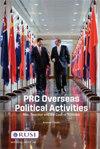五、哈尔格萨的适度实验
Q4 Social Sciences
引用次数: 0
摘要
摩加迪沙各区警察与社区的接触因部族动态、个性和安全问题而异。双方的期望都很低,但警察和他们所在的警察局的身体脆弱性意味着必须发展某种形式的工作关系;它可能是基于回避或默许,而不是信任,但它必须代表一种当地可接受的接触形式。这表明,理解警察-社区参与的关键在于警察需要的知识、技能和资源,以满足当地(而不是国际)对低级别安全管理的期望。这种解释有助于推动关于警察-社区关系的辩论,而不是现在的标准断言,即公众信任是影响警察效率和警察行动合法性的关键变量。与博阿滕相反,合作关系不依赖于制度合法性、信任或程序正义。相反,它取决于一系列特定于上下文的变量。摩加迪沙的环境是独特的,因此它的移动电话提供了一种双向技术,能够接触到低收入或边缘人群,并影响他们对犯罪的反应,这种经验不一定能转移到更偏远的索马里城市,如拜多阿和基斯马尤(分别向西和向南飞行140英里和250英里)。尽管如此,摩加迪沙的经验提出了关于本文章由计算机程序翻译,如有差异,请以英文原文为准。
V. Hargeisa’s Modest Experiment
Police–community engagement in Mogadishu’s districts varies according to clan dynamics, personalities and security issues. Expectations are low on both sides, but the physical vulnerability of police officers and their stations means that some form of working relationship must be developed; it may be based on avoidance or acquiescence, rather than trust, but it must represent a locally acceptable form of engagement. This suggests that the key to understanding police–community engagement is in the knowledge, skills and resources police need to fulfil local, rather than international, expectations regarding the management of low-level security. This interpretation helps to move the debate about police–community relations forward from the now standard assertion that public trust is the key variable influencing police effectiveness and the legitimacy of police actions. Contrary to Boateng, collaborative relationships do not depend on institutional legitimacy, trust or procedural justice. Rather, it depends on a range of context-specific variables. Mogadishu’s environment is unique, so its experience of mobiles providing a two-way technology capable of reaching low-income or marginalised populations and affecting their response to crime does not necessarily transfer to more remote Somali cities, such as Baidoa and Kismayo (140 and 250 miles by air to the west and south respectively). Nevertheless, Mogadishu’s experience raises general questions about the
求助全文
通过发布文献求助,成功后即可免费获取论文全文。
去求助
来源期刊

Whitehall Papers
Social Sciences-Archeology
自引率
0.00%
发文量
12
期刊介绍:
The Whitehall Paper series provides in-depth studies of specific developments, issues or themes in the field of national and international defence and security. Published three times a year, Whitehall Papers reflect the highest standards of original research and analysis, and are invaluable background material for policy-makers and specialists alike.
 求助内容:
求助内容: 应助结果提醒方式:
应助结果提醒方式:


